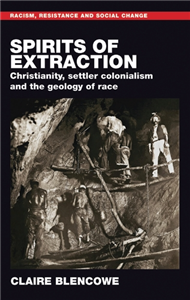Description
More Information
Rights Information
Albania, Algeria, Angola, Argentina, Armenia, Australia, Austria, Bahrain, Belgium, Belize, Benin, Bolivia, Bosnia and Herzegovina, Botswana, Brazil, Bulgaria, Burkina Faso, Burundi, Cameroon, Canada, Cape Verde, Central African Republic, Chad, Chile, China, Colombia, Comoros, Congo [DRC], Congo, Republic of the, Costa Rica, Ivory Coast, Croatia, Czech Republic, Denmark, Djibouti, Ecuador, Egypt, El Salvador, Equatorial Guinea, Eritrea, Estonia, Ethiopia, Faroe Islands, Finland, France, French Guiana, Gabon, Gambia, Georgia, Germany, Ghana, Greece, Guatemala, Guinea, Guinea-Bissau, Guyana, Honduras, Hongkong, Hungary, Iceland, India, Indonesia, Iran, Iraq, Ireland, Israel, Italy, Japan, Jordan, Kazakhstan, Kenya, Kuwait, Latvia, Lebanon, Lesotho, Liberia, Libya, Lithuania, Luxembourg, Macau, China, Macedonia [FYROM], Madagascar, Malawi, Malaysia, Mali, Malta, Mauritania, Mauritius, Mayotte, Mexico, Mongolia, Montenegro, Morocco, Mozambique, Namibia, Netherlands, New Zealand, Nicaragua, Niger, Nigeria, Norway, Oman, Pakistan, Panama, Paraguay, Peru, Philippines, Poland, Portugal, Puerto Rico, Qatar, Reunion, Romania, Russia, Rwanda, Saint Helena, Sao Tome and Principe, Saudi Arabia, Senegal, Serbia, Seychelles, Sierra Leone, Singapore, Slovakia, Slovenia, Somalia, South Africa, South Korea, Spain, Sri Lanka, Sudan, Suriname, Swaziland, Sweden, Switzerland, Syria, Taiwan, Tanzania, Thailand, Timor-Leste, Togo, Tokelau, Tunisia, Turkey, Uganda, Ukraine, United Arab Emirates, United Kingdom, United States, Uruguay, Venezuela, Vietnam, Western Sahara, Yemen, Zambia, Zimbabwe, South Sudan, Cyprus, Palestine, Bangladesh, Cambodia, Liechtenstein, Azerbaijan, Jamaica, Kyrgyzstan, Dominican Republic, Myanmar, Monaco
Endorsements
Spirits of extraction transforms our understanding of the relationship between racism, Christianity and humanitarian biopolitics in the long nineteenth century, presenting a new perspective on the intersection of the extractive industries, evangelical revivalism, and an ultimately genocidal civilisational metaphysics of race. The book explores Methodism and evangelical awakening in eighteenth century industrialising Bristol, England, the Cornish mining diaspora of the expanding British Empire, and the contested lands of Anishinaabewaki/Upper-Canada/Ontario in the nineteenth century and beyond. In her engaging style of writing theory by recounting history, Claire Blencowe offers a twofold intervention. She re-situates colonial religion and educational/cultural racism as central to the biopolitical project. Her analyses of wounding in the pursuit of 'truly Christian' education and of exorcism in evangelical subjectification adds a new dimension to comprehending the inherent violence of biopolitical governmentality and (settler) colonial sovereignty. She also extends thinking on the 'geology of race' by highlighting the extractive industries, alongside colonial encounters, as the affective scene through which modern evangelical Christianity came to life. This offers a major new contribution to theorising the connection between the politics of life and mining. The civilisational metaphysics of race secures the hierarchies and control that are required by extractive industries. At the same time evangelical experiences of salvation, exorcism, and the affirmative spiral of born-again faith resonate through geological consciousness and the extractive industries, helping to establish a kind of quasi-divine power that continues to dominate lives and lands.
Reviews
Spirits of extraction transforms our understanding of the relationship between racism, Christianity and humanitarian biopolitics in the long nineteenth century, presenting a new perspective on the intersection of the extractive industries, evangelical revivalism, and an ultimately genocidal civilisational metaphysics of race. The book explores Methodism and evangelical awakening in eighteenth century industrialising Bristol, England, the Cornish mining diaspora of the expanding British Empire, and the contested lands of Anishinaabewaki/Upper-Canada/Ontario in the nineteenth century and beyond. In her engaging style of writing theory by recounting history, Claire Blencowe offers a twofold intervention. She re-situates colonial religion and educational/cultural racism as central to the biopolitical project. Her analyses of wounding in the pursuit of 'truly Christian' education and of exorcism in evangelical subjectification adds a new dimension to comprehending the inherent violence of biopolitical governmentality and (settler) colonial sovereignty. She also extends thinking on the 'geology of race' by highlighting the extractive industries, alongside colonial encounters, as the affective scene through which modern evangelical Christianity came to life. This offers a major new contribution to theorising the connection between the politics of life and mining. The civilisational metaphysics of race secures the hierarchies and control that are required by extractive industries. At the same time evangelical experiences of salvation, exorcism, and the affirmative spiral of born-again faith resonate through geological consciousness and the extractive industries, helping to establish a kind of quasi-divine power that continues to dominate lives and lands.
Author Biography
Claire Blencowe is Associate Professor of Sociology at the University of Warwick
Manchester University Press
Manchester University Press is a leading UK publisher known for excellent research in the humanities and social sciences.
View all titlesBibliographic Information
- Publisher Manchester University Press
- Publication Date March 2025
- Orginal LanguageEnglish
- ISBN/Identifier 9781526176509 / 1526176505
- Publication Country or regionUnited Kingdom
- FormatPrint PDF
- Pages264
- ReadershipChildren/juvenile; College/higher education; Professional and scholarly
- Publish StatusPublished
- Dimensions234 X 156 mm
- Biblio NotesDerived from Proprietary 6187
- SeriesRacism, Resistance and Social Change
- Reference Code16349
Manchester University Press has chosen to review this offer before it proceeds.
You will receive an email update that will bring you back to complete the process.
You can also check the status in the My Offers area

Please wait while the payment is being prepared.
Do not close this window.



